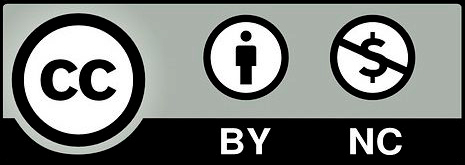 Financing options, credits and loans Financing options, credits and loans
What is a loan? Click to read Click to read
|
It is very likely that at some point in our lives we will need to borrow money. For example, we need to buy something that requires a large amount of money: a car, a house, renovations... These are situations in which we do not always have the necessary funds to carry them out and we need to ask for a loan from a financial institution.
A bank loan is the operation whereby the bank lends a certain amount of money, previously stipulated in a contract, to a client. After the agreed time has elapsed, the client must return the capital loaned, as well as the interest previously agreed with the bank.
|
 |
|
When a loan is formalised, the financial institution (also known as the "lender") gives its client (borrower) the amount of money agreed in the contract, in exchange for the client's commitment to return the amount borrowed, and to pay interest and commissions, under the agreed conditions of time and form (normally in periodic instalments).
Example: Sophie (borrower) goes to XYZ bank (lender) to ask for a loan of €30,000. Bank XYZ will grant her the €30,000 in exchange for Sophie repaying the amount borrowed plus interest at 5% per annum over a period of five years. In addition, loan origination fee and study comission of €300 are paid at the time of signing the contract.
|
 |
What are the elements of a loan? Click to read Click to read
- Principal: this is the money that Sophie has requested from XYZ bank (€30,000).
- Interests: this is the price Sophie pays for borrowing the money (5% per annum on the capital borrowed).
- Term: the time agreed between the two parties to repay the principal plus interest (five years).
- The contracting parties: the lender (bank XYZ) and the borrower (Sophie).
|
 |
|

|
- Fees and expenses: an amount charged by the bank for carrying out the transactions, as well as all those expenses that derive from the debt (€300).
- Documentary support: documents containing the information in the loan contract.
- Guarantor: this is the figure who undertakes to respond to the financial institution, with his or her own assets, for possible defaults by the borrower.
|
What is the difference between a credit and a loan? Click to read Click to read
|
Credit and loan are different contracts. If you have a credit, you can draw on the capital provided by the bank as you need it, whereas if you have a loan, you will receive the capital all at once.
|
|
In a credit contract:
- The bank grants a maximum limit of money and the customer can draw on this money according to his or her needs at any given time. That is, you could use all the money granted, only part of it, or none at all.
- Interest is only paid on the amount used (although there may be fees for the undrawn balance).
- As you repay the money you can continue to draw more as long as you do not exceed the limit granted.
- For example, we are granted a credit of 3,000 euros and we spend 2,600. If we pay back 600 euros in the following month's instalment, we will have 1,000 euros available (we will still have 2,000 euros to pay back).
- The usual ways of obtaining financing through credit are "credit cards", "credit facility" or "credit line", which is articulated through a current account.
|
 |
|
In a loan contract:
- You will receive the agreed amount of money in one lump sum at the start of the contract.
- You will have to pay back the money together with interest and feed within the agreed terms.
|
 |
Loan modalities. Click to read Click to read
|
Although there are different types of loans, they all fall into two broad categories known as personal loans and mortgage loans.
|
 |
Personal loans:
This type of loan is normally used for the purchase of consumer goods and services: a car, a computer, furnishing the house, going on holiday, studying abroad... They are called personal loans because they have our present and future personal guarantee. This means that the bank bases the loan on the customer's commitment to pay. It can also include guarantors. Due to the high risk involved in this operation, they usually have a high interest rate.
|
|
Mortgage loans:
These are loans intended to finance the purchase or restoration of a home. This type of financing, in addition to involving larger amounts of money than personal loans, has a real guarantee for the bank. In other words, if the client does not return the loan, the bank can sell the mortgaged property to repay the debt or become the owner of the property.
Thus, as it has an effective guarantee, it is one of the safest loan operations for the entity that grants it and, consequently, the interest rate applied is lower than that of a personal loan.
|
 |
 |
The interest rate at which these loans can be contracted can be fixed (its value is unalterable during the term of the loan) or variable (the value is revised periodically depending on the evolution of the reference used, for example, the Euribor). The variable interest rate is the most risky for the debtor, since an economic crisis can cause the instalment to be paid to skyrocket.
Finally, there is a mixed-rate modality. A fixed interest rate is established during the first years of the contract and, subsequently, a variable rate is established until the maturity of the operation. The instalment to be paid could go up or down depending on the evolution of the reference interest rate used.
|
What expenses can our bank charge us when it grant us a loan?  Click to read Click to read
| The main expense will be the interest rate, in addition to different fees, such as the study fee, origination fee, etc. Remember that all these costs are included in the APR of the operation, which must appear prominently in the advertising and in the information that the entity must provide before taking out the loan. In a loan operation, the higher the APR, the higher the cost to the customer. The APR is what will always inform us of the real cost of the loan and will help us to compare offers. |
| In case the loan granted is a mortgage loan, in addition to the opening and study commission of the operation, the mortgagor will have to pay the appraisal of the property and the notarial document in addition to the copy of the deed. |
 |
What should you ask yourself before acquiring a credit or loan? Click to read Click to read
|
When you need to apply for a loan, some basic questions to ask yourself are:
|
|
How much do I really need?
To calculate the amount we really need, we must take into account that the formalisation of the loan may entail a series of expenses (commissions, notary and registry fees, taxes, insurance, etc.), in addition to the tax burden and the expenses linked to the property whose purchase is being financed.
|
 |
 |
How much loan can I apply for?
Normally, financial institutions, especially in the case of mortgage loans, establish certain limits on the total amount they can lend. Thus, the most common maximum limits are between 80% of the appraised value. |
|
How much of my income can I use each month to repay the loan?
In order to make a decision on the loan, it is essential to know what the financial burden (sum of the capital to be repaid plus interest) is that we have to face and on what dates. A person will have the capacity to repay if his or her regular income (net of income tax and social security contributions) can cover his or her ordinary expenditure needs (food, household running costs, travel, etc.) and the financial burden of the loan.
|
 |
|

|
Other important questions are as follows:
- Do I need this item now or can I wait until I save the money to buy it?
- What is the interest rate?
- How much is paid monthly and when is it due?
- Are there additional costs?
- What do I have to sacrifice to repay the credit (opportunity cost)?
- What will happen if I do not make the payments on time?
|
 Summing up Summing up
Summing up Click to read Click to read
 |
Loan
A bank loan is the operation whereby the bank lends a certain amount of money, previously stipulated in a contract, to a client.
|
 |
 |
Personal loan
This type of loan is normally used for the purchase of consumer goods and services. They have our present and future personal guarantee.
|
 |
Credit
The bank grants a maximum limit of money and the customer can draw on this money according to his or her needs at any given time.
|
 |
Mortgage loan
These loans are intended to finance the purchase or restoration of a home. They are a real guarantee for the bank.
|
|

 Financing options, credits and loans
Financing options, credits and loans Click to read
Click to read 








